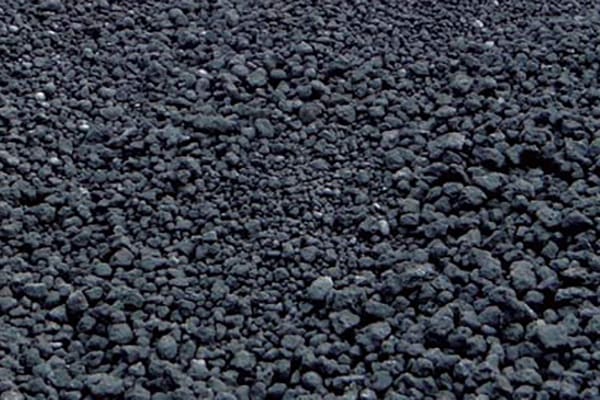Calcined Petroleum Coke (CPC) is a crucial industrial material derived from petroleum and widely used in various industries, including aluminum production, steelmaking, and chemical manufacturing. This article explores what calcined petroleum coke is, its production process, its properties, and its diverse applications.
Understanding Calcined Petroleum Coke
Calcined petroleum coke is a carbonaceous solid material obtained by heating raw petroleum coke (often referred to as green coke) at high temperatures in a controlled environment. The calcination process removes volatile matter, moisture, and impurities, leaving a product with a high carbon content and excellent structural properties.
CPC is primarily composed of carbon, with small amounts of sulfur, nitrogen, and trace metals. Its high purity, thermal stability, and electrical conductivity make it a valuable material in various industries.

How is Calcined Petroleum Coke Produced?
- Raw Petroleum Coke Formation
- Raw petroleum coke is a byproduct of the oil refining process. It is created during the thermal cracking of heavy residues from crude oil refining, where hydrocarbons are broken down into lighter fractions.
- The result is a solid residue with a high carbon content and low ash, but it still contains volatile organic compounds and impurities.
- Calcination Process
- The raw petroleum coke is subjected to calcination, a process involving heating it to temperatures between 1,200°C and 1,350°C in a rotary kiln or a vertical shaft kiln.
- During calcination, volatile matter, such as hydrocarbons, moisture, and gases, is eliminated, resulting in a denser, purer carbon product.
- The process also transforms the amorphous structure of raw coke into a more graphitized, crystalline form.
Properties of Calcined Petroleum Coke
Calcined petroleum coke has several distinct properties that make it highly useful in industrial applications:
- High Carbon Content: Typically above 98%, ensuring high purity.
- Low Sulfur and Ash Content: Essential for minimizing impurities in the final products.
- Thermal Stability: Withstands high temperatures without breaking down, making it ideal for high-heat processes.
- Electrical Conductivity: Its conductive properties make it suitable for use in electrodes and other electrical applications.
- Hardness and Density: The calcination process increases the hardness and density, enhancing its mechanical properties.
Applications of Calcined Petroleum Coke
CPC is a versatile material used in a variety of industries. Here are its main applications:
- Aluminum Production
- The primary use of calcined petroleum coke is in the production of carbon anodes for aluminum smelting.
- In the Hall-Héroult process, carbon anodes made from CPC and coal tar pitch are used to conduct electricity and reduce alumina into aluminum.
- Steelmaking
- CPC is used in the steel industry as a recarburizer, a material added to molten steel to increase its carbon content.
- It helps improve the mechanical properties of steel, including hardness and tensile strength.
- Graphite Electrode Production
- CPC is a key raw material in manufacturing graphite electrodes, which are used in electric arc furnaces for steel production. Its high conductivity and purity ensure efficient operation and minimal contamination.
- Chemical Industry
- In the chemical sector, CPC serves as a raw material for producing various carbon-based products, including specialty chemicals and lubricants.
- Energy Storage and Battery Applications
- Calcined petroleum coke is being explored for use in advanced batteries and energy storage systems, thanks to its high conductivity and stability.
Environmental Considerations
While CPC is a critical industrial material, its production and use pose some environmental challenges:
- Emissions: The calcination process releases greenhouse gases, such as CO₂, into the atmosphere.
- Energy-Intensive: Producing CPC requires substantial energy, leading to a significant carbon footprint.
- Sustainability Efforts: To address these concerns, industries are investing in technologies to reduce emissions and improve energy efficiency during CPC production.
Conclusion
Calcined petroleum coke is a high-purity carbon material essential for various industries, particularly in aluminum smelting and steelmaking. Its unique properties, such as high carbon content, thermal stability, and electrical conductivity, make it indispensable in applications that demand superior performance and durability.
As industries continue to innovate, efforts to improve the sustainability of CPC production are crucial for minimizing its environmental impact. Calcined petroleum coke will remain a cornerstone of modern industrial processes, supporting advancements in materials and energy solutions.
Post time: 11-18-2024





